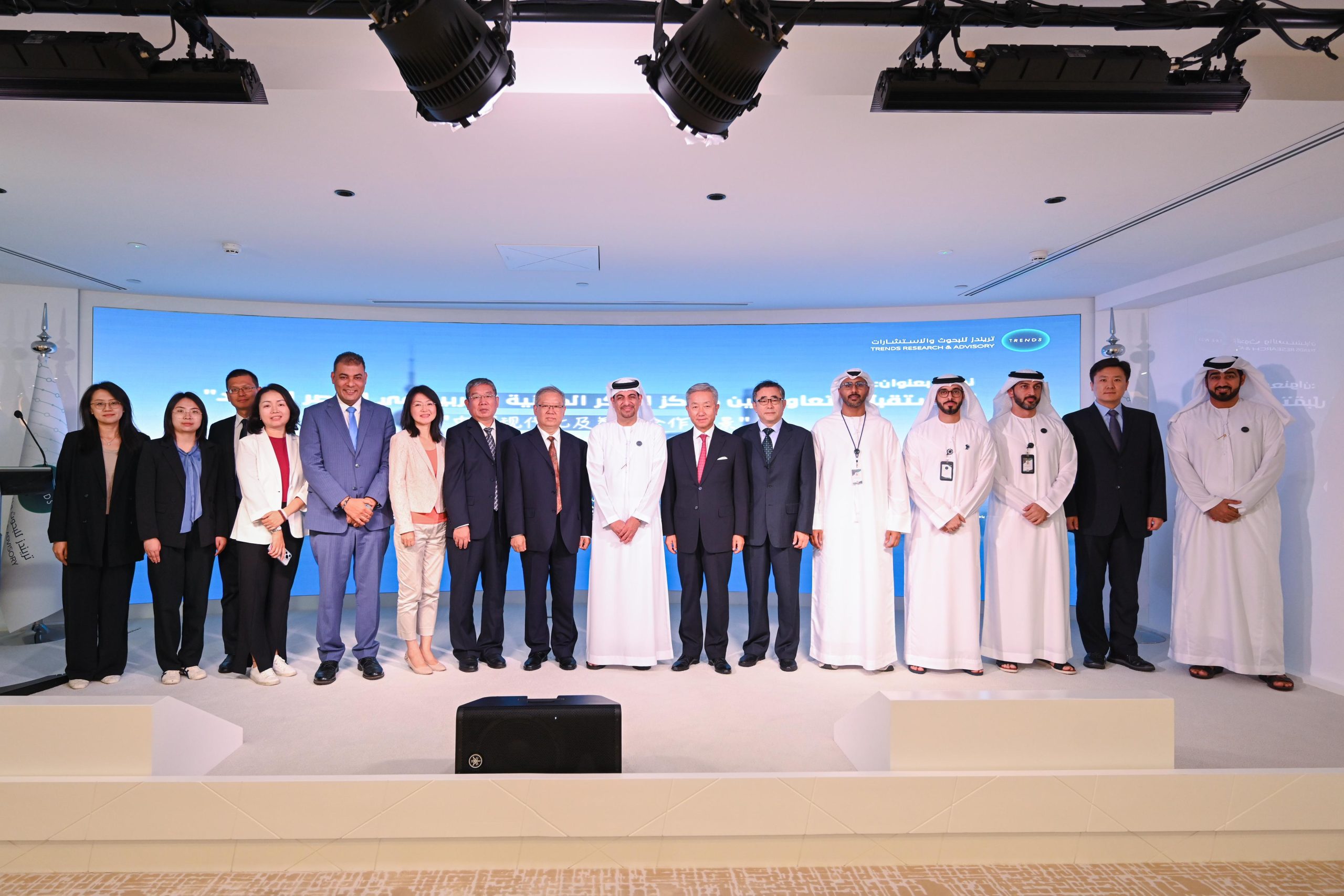–Officials and researchers affirm:
- There is a need to enhance research and intellectual partnerships to face global challenges
- Cultural understanding is a bridge for Chinese-Arab cooperation in development and peace
A scientific symposium was organized by TRENDS Research and Advisory at its head office in Abu Dhabi in collaboration with the Institute of Party History and Literature of the Chinese Communist Party and Bayt Alhekma Culture Group under the title “Future Cooperation between Chinese Arab Think Tanks in the New Era” with the aim of enhancing research partnerships and developing strategic cooperation between China and Arab countries.
The symposium, which was attended by a high-level Chinese delegation led by His Excellency Sun Dongsheng, Deputy Chairman of the Institute of Party History and Literature of the Chinese Communist Party, along with His Excellency Zhang Yiming, the Chinese Ambassador to the UAE, and several researchers and experts from both sides, highlighted the significance of intellectual and cultural cooperation, enhancing common understanding and building research platforms between China and Arab countries to formulate solutions to common future challenges.
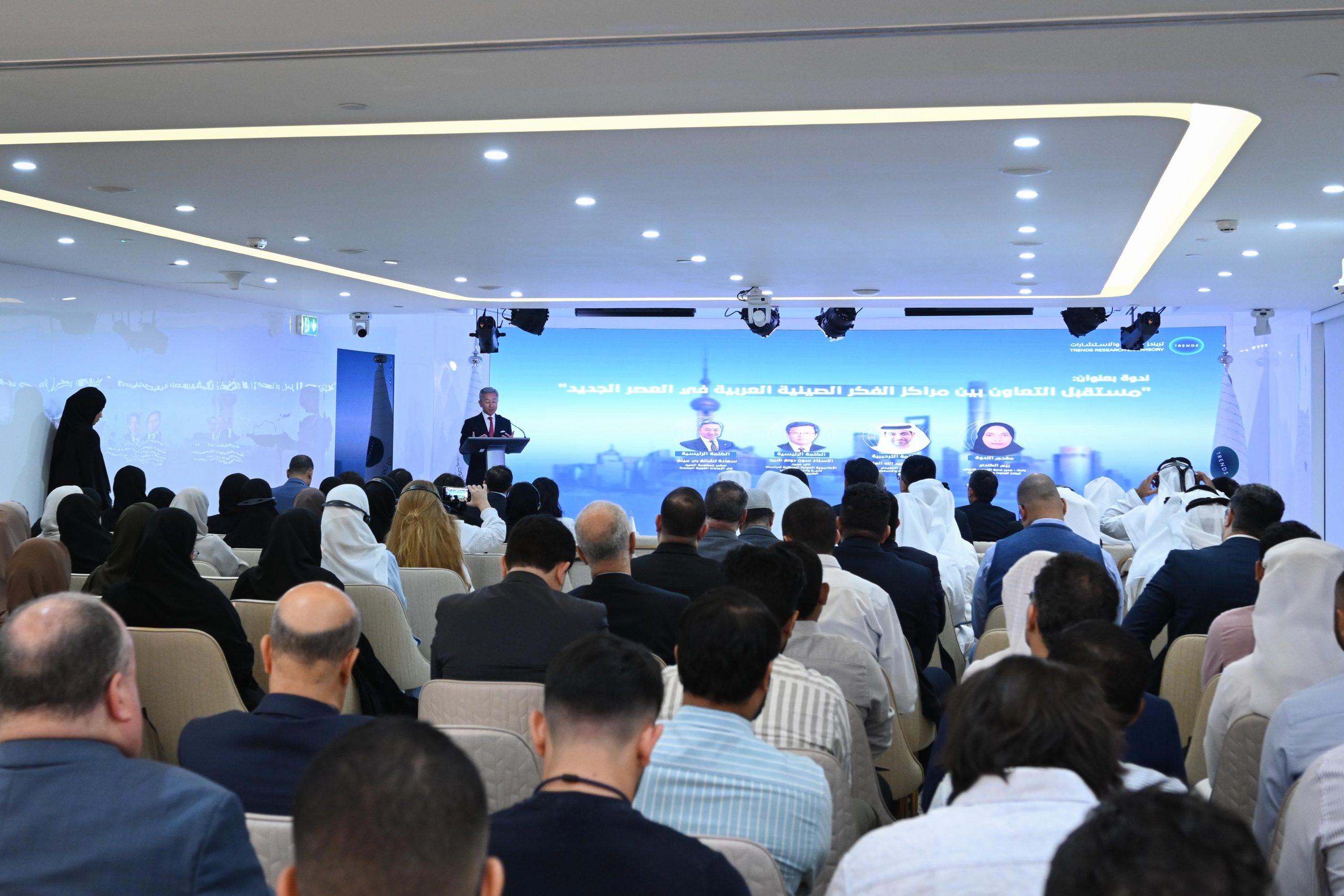
In his welcoming address, Dr. Mohammed Abdullah Al-Ali, CEO of TRENDS, expressed pride in hosting this event, which focuses on strengthening cooperation between Chinese and Arab think tanks and exchanging ideas to serve mutual development and enhance community stability.
Dr. Al-Ali stressed the importance of cooperation among think tanks, pointing out that TRENDS has been striving since its inception to deepen those links and has successfully established extensive research partnerships across the globe, including with China.
He also noted TRENDS’ success in organizing the First TRENDS BRICS Think Tanks Summit in Moscow, which explored the role of research and media institutions in developing policies and enhancing the soft power of BRICS nations.
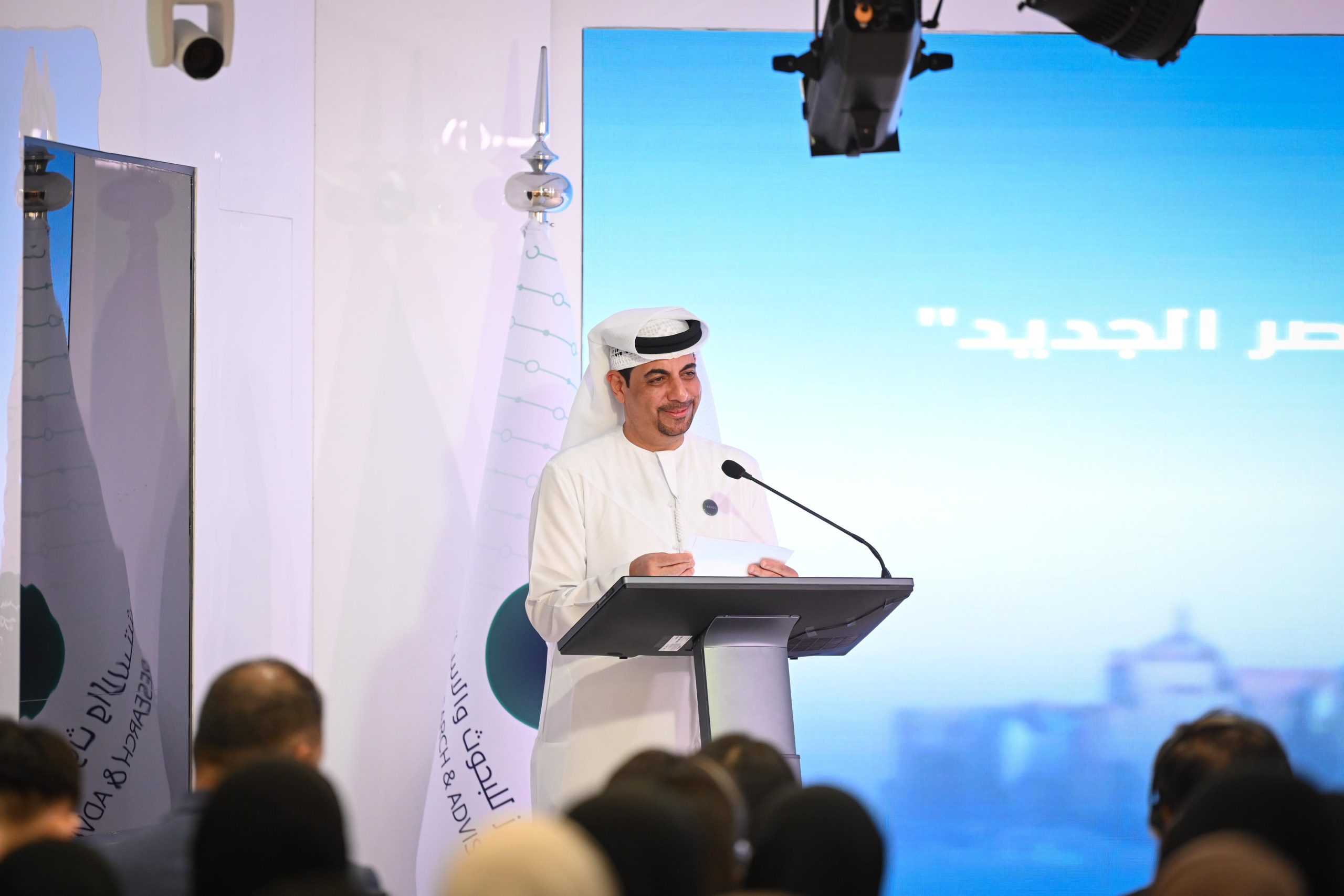
Dr. Al-Ali highlighted TRENDS’ significant commitment to enhancing cooperation with Chinese centers, including joint research activities with the Chinese Embassy in the UAE and the China Media Group, participation in the 2024 Beijing International Book Fair, and the opening of a virtual office in China to bolster research and intellectual cooperation between the two sides.
He affirmed that cooperation among think tanks has become an urgent necessity in light of increasing global challenges, as think tanks can contribute through the exchange of ideas and insights to formulate comprehensive strategies to address those challenges.
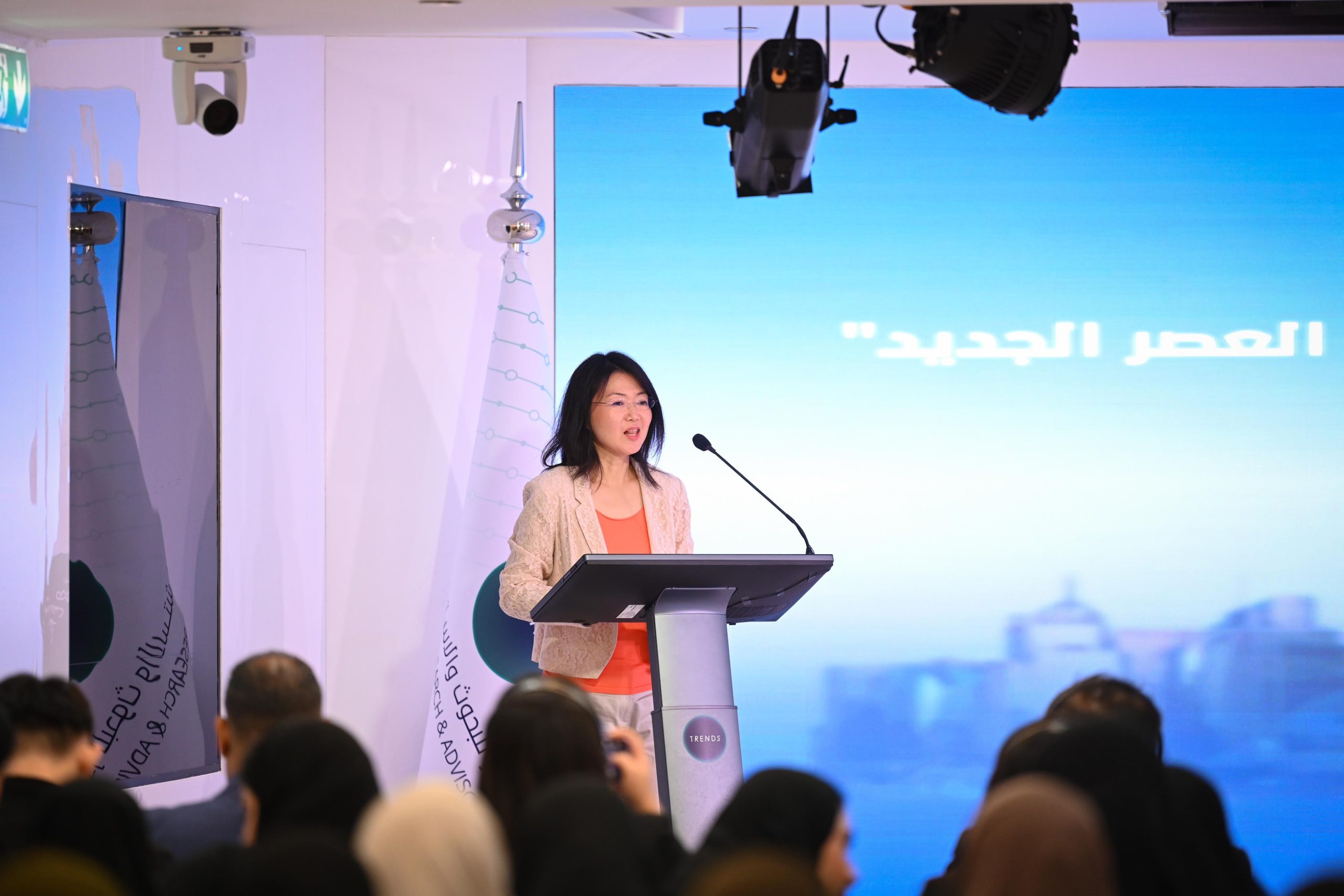
A Global Model
In his remarks at the symposium, His Excellency Sun Dongsheng, Deputy Chairman of the Institute of Party History and Literature of the Chinese Communist Party, emphasized the importance of strengthening cooperation between China and Arab countries to achieve mutual modernization and build a “community of shared destiny”. He recalled the five principles of Chinese modernization proposed by President Xi Jinping, which include the importance of comprehensive party leadership, adherence to socialism with Chinese characteristics, and a focus on people-centered development.
Sun Dongsheng highlighted the need to deepen reform and openness, fostering a “spirit of struggle” that includes achieving common prosperity and harmonizing material and cultural civilizations. He praised China’s positive initiatives such as the Belt and Road Initiative and collaboration in various fields such as economics, energy and technology, which enhance cooperation with Arab nations. He expressed hope that Chinese-Arab cooperation could serve as a global model for peaceful development, mutual understanding and a better future for all.
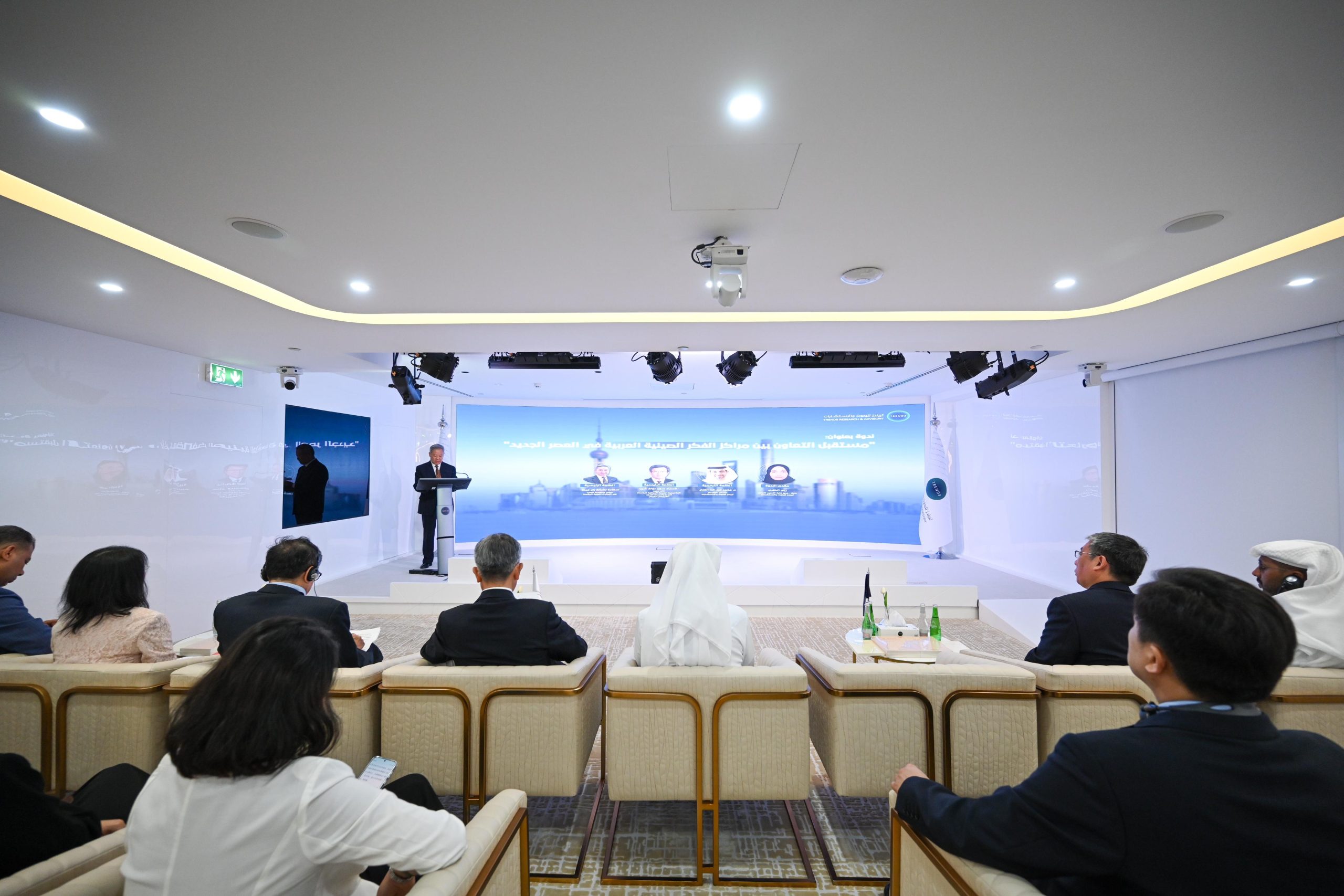
A Balanced Modernization
His Excellency Zhang Yiming, the Chinese Ambassador to the UAE, expressed his happiness at attending the symposium, commending the deep relationship between China and the UAE. He noted that China is continuing its efforts toward achieving the “Chinese-style modernization”, which aims to enhance international balance and create new developmental gains beneficial to the entire world. The ambassador underscored the significance of Chinese-Arab cooperation, especially considering that China has signed cooperation documents within the framework of the Belt and Road Initiative with 22 Arab countries, which support infrastructure projects benefiting nearly two billion people.
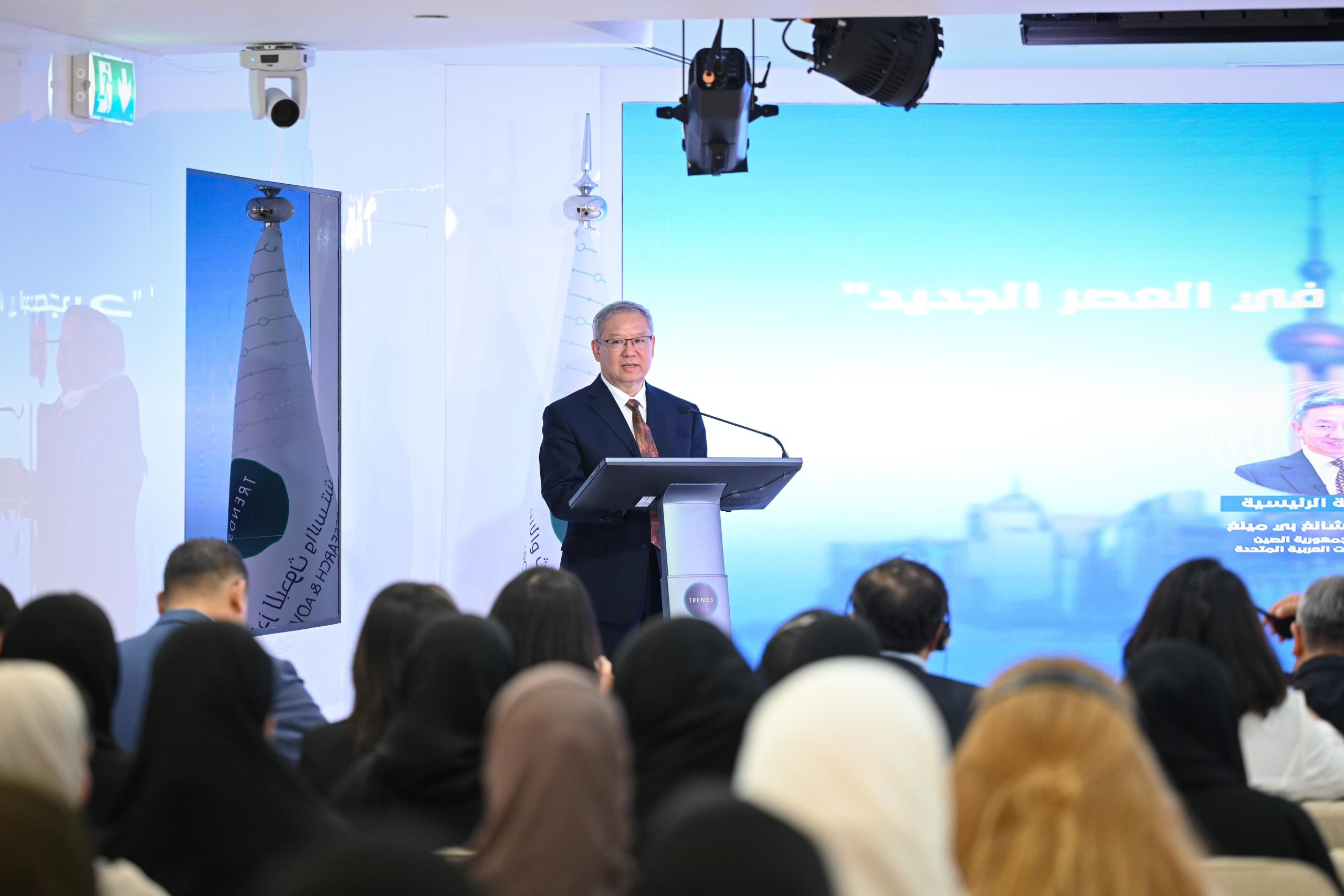
Research as a Powerful Tool
In her remarks at the symposium, Mouza Al-Marzooqi, researcher and Head of the Economic Studies Department at TRENDS, discussed the prospects for cooperation between China and the Arab world in areas such as technology, renewable energy and the environment. She pointed out that research and intellectual cooperation between both sides serves as a powerful tool to support modernization strategies and sustainable development. Al-Marzooqi also spoke about the role of think tanks in establishing partnerships aimed at exploring solutions to environmental challenges, such as desertification and water scarcity, and developing strategies for sustainable cities that integrate renewable energy and green spaces.
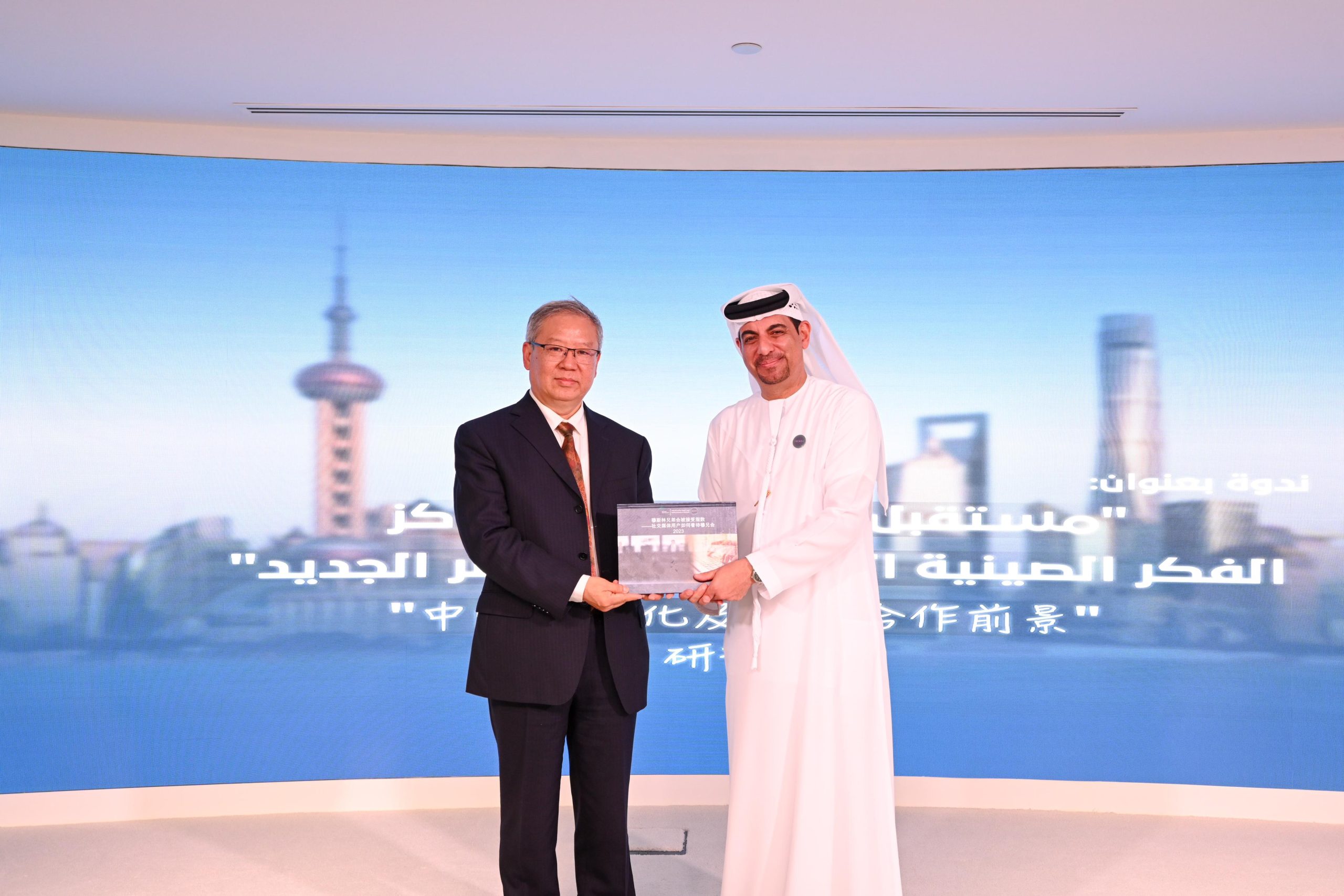
A Fundamental Reference for Development
Huo Na, Director of the Arab Section at the Sixth Research Department at the Institute of Party History and Literature of the Chinese Communist Party, highlighted the significance of “Chinese-style modernization” as a fundamental reference for developing countries. She pointed out China’s contributions to achieving development and peace through its global initiatives and its support for Arab countries in charting independent development paths. Huo emphasized that Chinese-style modernization represents a path for peaceful development aimed at sharing and mutual benefit, promoting a civilizational vision based on equality and dialogue.
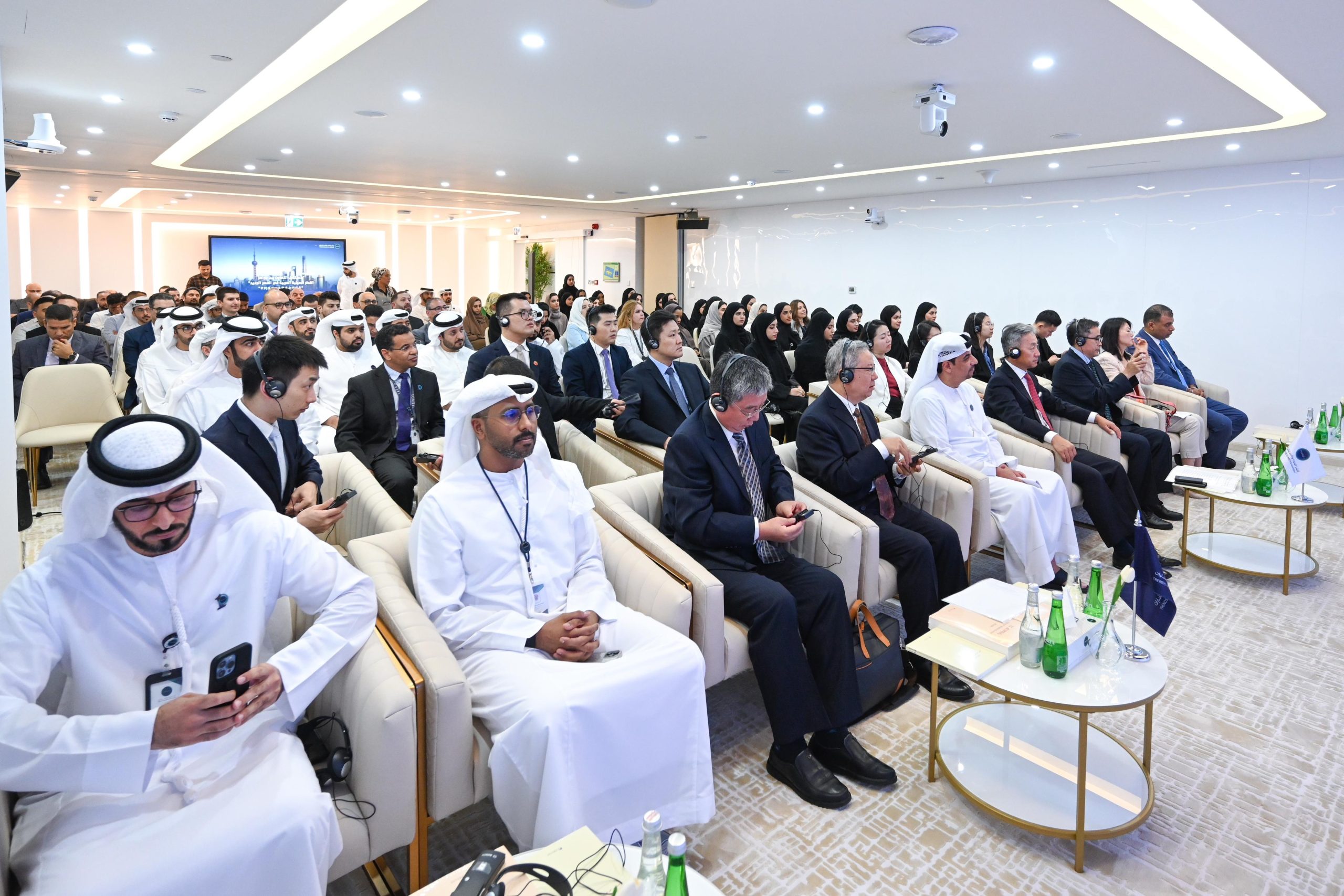
Symposium Recommendations
At the conclusion of the symposium, Dr. Ahmed Al-Said, CEO of the Bayt Alhekma Culture Group, presented the group’s recommendations, which include the need to issue periodic publications and studies in both Arabic and Chinese focusing on modernization, addressing contemporary challenges, and China’s role in global development and community prosperity. The recommendations stressed enhancing language and research training through specialized linguistic training programs, including field courses to develop Arab researchers’ Chinese language skills and promote Arabic language education for Chinese researchers to bridge the language gap and enable effective direct communication and idea exchange.
Additionally, the recommendations propose organizing an annual conference for Chinese and Arab think tanks alternately in an Arab capital and Beijing to discuss developments in cooperation, establish new frameworks for sustainable partnerships, and strengthen deeper relationships. They also encourage direct academic cooperation between Chinese and Arab universities on joint studies of culture and regional studies relevant to both parties, without reliance on intermediaries, and highlight the importance of Chinese-Arab relations by preparing joint studies that showcase the historical and cultural depth between the two civilizations. Initiatives for sustainability and development, particularly in renewable energy, the environment, and agricultural innovation, are also suggested, where China could share its expertise in solar energy and sustainable irrigation to address challenges like desertification and water scarcity faced by the Arab region.



